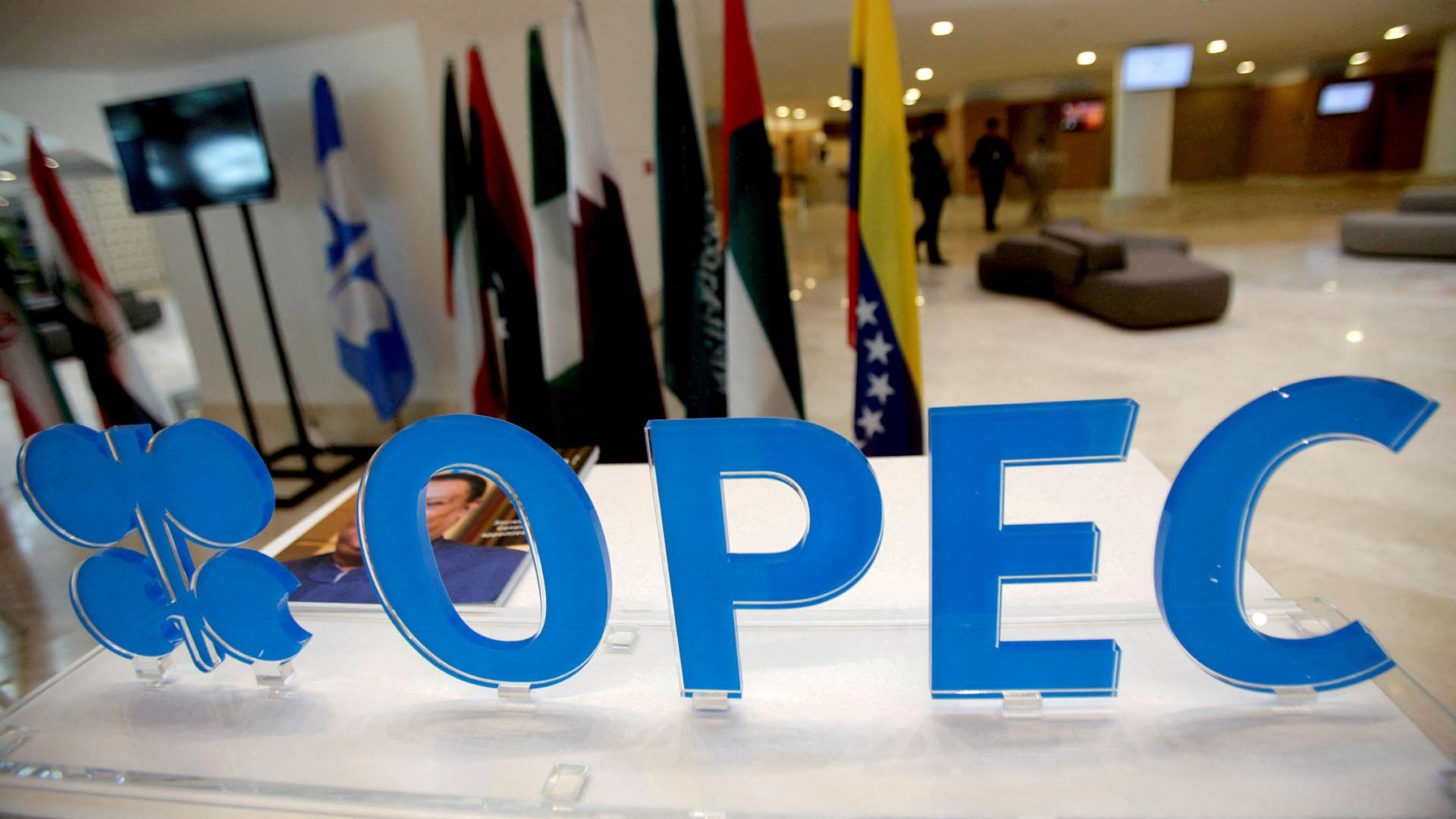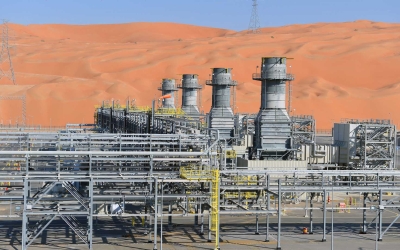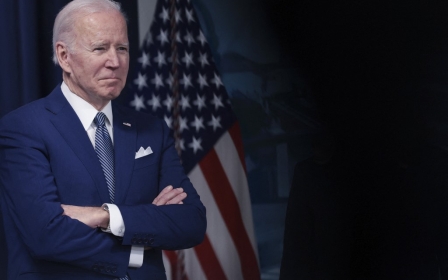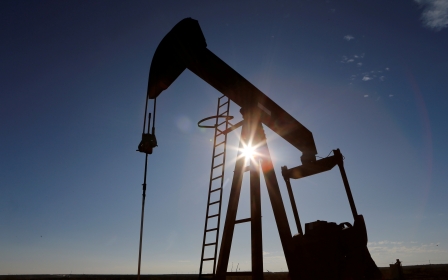Russia-Ukraine war: Opec can't pump enough to bring down oil prices, say experts

Opec countries, particularly Saudi Arabia and the United Arab Emirates, are sitting on tens of millions of barrels of oil, but it's unlikely market prices would fall even if production were boosted, experts have said.
Crude oil prices rose to their highest levels in more than a decade following Russia's invasion of Ukraine, adding to the squeeze facing consumers worldwide.
Washington's decision to formally ban Russian oil imports caused oil prices to climb even further - but some analysts say this could be countered if top oil producers such as the Saudi-led Opec group of countries were to ramp up production.
But Opec officials have expressed scepticism at their ability to compensate for an absence of Russian oil on the global market. For months, US President Joe Biden and his administration have been trying to convince the two Gulf countries in particular to boost production, but both nations have rebuffed Washington's overtures.
Saudi Arabia and the UAE say they remain committed to an Opec+ deal, declining to go beyond a plan agreed last year to month-on-month increases in production by 400,000 barrels a day.
New MEE newsletter: Jerusalem Dispatch
Sign up to get the latest insights and analysis on Israel-Palestine, alongside Turkey Unpacked and other MEE newsletters
Opec+ is a group of 24 oil-producing nations, made up of the 14 Opec members and 10 non-Opec nations, including Russia. It was created in 2017 in an effort to better coordinate oil production and stabilise global prices.
Relations between the US and Saudi Arabia have been strained since Biden took office, with the country's de-facto ruler, Crown Prince Mohammed bin Salman, facing criticism over the killing of Middle East Eye columnist Jamal Khashoggi.
Additionally, both Riyadh and Abu Dhabi have expressed concerns over Washington's attempts to revive the Iran nuclear deal.
'For now, both countries [Saudi Arabia and the UAE] seem to find their interests more closely aligned with Russia'
- David L Goldwyn, former State Department special envoy on energy
According to the Wall Street Journal, Bin Salman and Abu Dhabi Crown Prince Mohammed bin Zayed have given Biden the cold shoulder, and recently declined requests to speak with the US president.
Abhiram Rajendran, research director at Energy Intelligence, said there was a supply shortage of around five million barrels needed to create a buffer to prevent market volatility and replace Russian oil supplies, due to a number of factors - including western sanctions on Moscow.
The ban on Russian oil caused the price of Brent Crude, the standard benchmark for oil, to rise to $130 a barrel - before dropping 13 percent to $112 a barrel. On Thursday morning the price climbed back up to $118.
"Opec adding, unilaterally, a million barrels a day of supply would help to ease that by, $5-10," Rajendran told MEE. "It's not really going to help that much."
Saudi Arabia has enough spare capacity - volume of production that can be brought on within a month and sustained for at least 90 days - to export an extra two million barrels of oil per day (bpd). It currently exports around 10 million bpd.
The UAE could probably increase its production by another 500,000 barrels a day, although the Wall Street Journal suggested it could bring an extra million barrels a day to the market. It is currently required to export three million barrels a day, according to Opec.
But even stretching themselves to maximum capacity wouldn't be enough to fill the five million barrels a day shortfall, Rajendran said:
"It was a tight, uncomfortable market to begin with, and now it's become a very disrupted market from a supply standpoint."
No reason for Opec not to boost supply
Following its monthly meeting last week, which lasted just 13 minutes, Opec+ member countries said the recent price surge was due to geopolitical reasons, and did not reflect the supply and demand of oil around the world.
However, days after the meeting, Russia was hit with a number of sanctions, and while they were not oil-related, Rajendran said that they had a real impact on the world's oil supply.
"It's mainly a function of just just how complex and broad-based the sanctions are from the west. And the fact that traders, shippers [and] buyers are pretty nervous about taking these barrels in different parts of the world," Rajendran said.
Even though Opec alone is unable to fill the supply shortage of supply, David L Goldwyn, a former State Department special envoy on energy under the Obama administration, told MEE that the group should still be working to ease market volatility.
"There is no reason, from a market perspective, why Opec should not be removing its production cuts at a pace faster than 400,000 [daily] barrels per month to alleviate market conditions," said Goldwyn, who is also president of the international energy consultancy Goldwyn Global Strategies.
"The political reason is obvious," he added. "For now, both countries [Saudi Arabia and the UAE] seem to find their interests more closely aligned with Russia than with their future markets in Asia or their consumers in Europe and North America."
Meanwhile, Biden's decision to ban the three percent of US crude imports which originate in Russia, while not of major economic significance, is aimed at further isolating Moscow.
The UK also declared on Tuesday that it would phase out imports of Russian oil by the end of the year, but Russian gas imports would remain. The European Union has refrained from making any similar pledges, as the continent relies heavily on Russian energy supplies.
If Europe were to follow the US in sanctioning Russia's oil, it would not be able to make up the energy shortfall. In 2021, Europe imported about 4.5 million barrels per day, almost a third of which came from Russia, according to White House Press Secretary Jen Psaki.
Oliver John, a non-resident scholar at the Middle East Institute and president of Astrolabe Global Strategy LLC, told MEE that, while Opec wouldn't have capacity to meet the global demand for oil, it would have enough to offset some of the supply of Russian oil to Europe, should that get cut off as the war in Ukraine continues.
The European Commission did outline proposals on Tuesday to "make Europe independent from Russian fossil fuels well before 2030", said John, who served as a career US diplomat for three decades.
"We must become independent from Russian oil, coal and gas," the commission's president, Ursula von der Leyen, said in a statement. "We simply cannot rely on a supplier who explicitly threatens us."
Europe getting rid of Russia as an oil supplier would be difficult, as it currently imports 26 percent of its crude from Moscow. Saudi Arabia, meanwhile, provides just under eight percent. But John noted Opec could still play a part in the European Commission's plans:
"In general, between the Saudis and Emiratis, and maybe the Kuwaitis, they could [ramp] up production enough to replace some significant portion of what the Russians are exporting."
Middle East Eye delivers independent and unrivalled coverage and analysis of the Middle East, North Africa and beyond. To learn more about republishing this content and the associated fees, please fill out this form. More about MEE can be found here.





